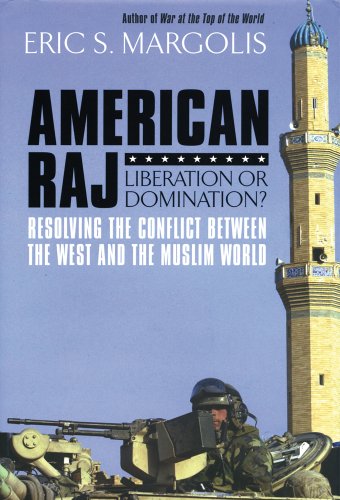Should Japan and South Korea be permitted to develop nuclear weapons? That was the very good question posed last week by candidate Donald Trump.
Washington’s elite and neocon war party threw up their hands in horror at Trump’s heretical question. The media, heavily influenced by neocons who hate Trump’s call for even-handed US policy in the Mideast, scorned his nuclear proposal or simply ignored it.
Too bad that Trump’s proposal was drowned in a sea of media noise. His idea has merit. This writer, long specialized in North Asian security affairs, has been advocating for a decade that Japan and South Korea develop their own nuclear weapons and anti-missile systems.
 American Raj Liberatio...
Buy New $4.99
(as of 06:10 UTC - Details)
American Raj Liberatio...
Buy New $4.99
(as of 06:10 UTC - Details)
Two of Asia’s most important powers cannot afford to remain strategically naked, vulnerable and totally reliant on US strategic protection. Would the US risk a nuclear war, even a limited one, to protect Pusan, South Korea or Kobe, Japan?
Trump framed this question in dollars, as befits a businessman. Why should the US pay to defend these two wealthy nations? The answer: because Japan and South Korea are the keystones of America’s Asian imperium. They offer highly important military bases and key strategic geography that allows the US to politically, militarily and economically dominate North Asia. Expenses therefrom are costs of empire.
Trade plays an even bigger role in the American imperium than military power. By giving Japanese and South Korean industries access in the 1950’s to the vast US market, Washington made them economic as well as military dependents. Today, China is half way into the same imperial trade system.
Now, the rapid development of nuclear-armed medium and long-range missiles in China and North Korea – both bitter historic enemies of Japan – is forcing Tokyo and Seoul to confront this vital issue.
Last week, numerous intelligence sources affirmed that North Korea had indeed miniaturized a nuclear warhead that could be carried atop one of its improved Rodong intermediate, 2,000km -range missiles. This would allow North Korea to hit targets all over South Korea, most of Japan, Okinawa and perhaps the giant US base at Guam.
The North could also menace the far more important target, Japan. Even shorter range N. Korean missiles can hit Japan, which has only very limited anti-missile defense. Israel, by comparison, has a far more capable multi-level anti-missile system. In spite of much talk about new strategic defenses, Japan is almost naked unto its enemies.
 War at the Top of the ...
Buy New $4.99
(as of 06:10 UTC - Details)
War at the Top of the ...
Buy New $4.99
(as of 06:10 UTC - Details)
If North Korea attacked Japan, the US would be compelled to enter the fray. It’s also a poorly kept secret that the US would likely use tactical nuclear weapons to blunt a North Korean invasion of South Korea- just what General Douglas MacArthur urged half a century ago during the Korean War. A war between China and Japan over the contested South China Sea could erupt anytime
In short, Japan, South Korea or both could drag the US into a nuclear confrontation with North Korea or China that it wished to avoid. Because these nations lack any strategic retaliatory weapons to face down their enemies, they would either have to surrender to blackmail from North Korea and China or beg the US to join the nuclear confrontation.
 Both Seoul and Tokyo understand how vulnerable they are. In the mid-1970’s, South Korea’s tough leader, Park Cheung-hee, sought to develop nuclear weapons. The South Korean effort was stopped by intense US pressure and even threats.
Both Seoul and Tokyo understand how vulnerable they are. In the mid-1970’s, South Korea’s tough leader, Park Cheung-hee, sought to develop nuclear weapons. The South Korean effort was stopped by intense US pressure and even threats.
Japan has covertly worked on nuclear weapons for decades. This writer even saw plans for a Japanese atomic weapon. Today, Japan’s high-tech industry is believed to be able to deploy a nuclear bomb within 90 days of a go decision. I also believe that Switzerland has a similar secret capability.
Ending the pretense of nuclear virginity would make North Asia safer. China and North Korea would be much less likely to threaten Japan and South Korea if these latter nations had nuclear retaliatory forces and anti-missile systems.
Anyway, why can’t these grown-up democracies in Japan and South Korea have nuclear weapons when Washington has secretly allowed India and Israel to build powerful nuclear arsenals?





